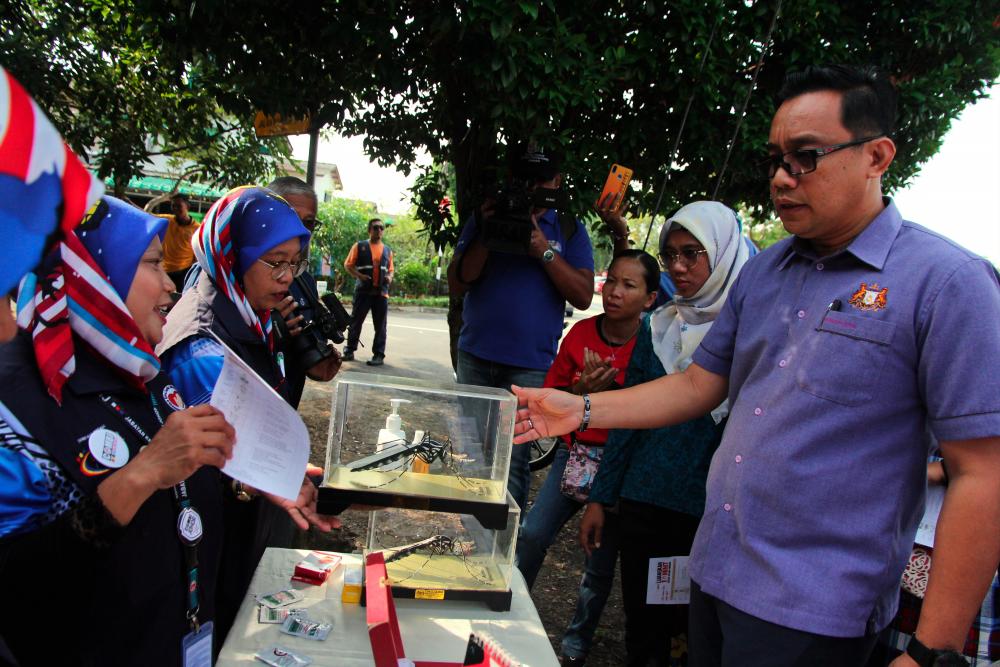JOHOR BARU: The number of dengue cases in Johor has increased at an alarming rate with 7,761 cases recorded from Jan 1 to Aug 31 this year, a rise of 101.2% compared with 3,857 cases in the same period last year, according to Johor Health, Culture and Heritage Committee chairman Mohd Khuzzan Abu Bakar.
He said for the same period last year, 12 deaths were reported compared to 19 fatal cases this year, with eight reported in Johor Baru and the rest in Batu Pahat, Kluang and other districts.
“Johor Baru still has the most dengue cases with 74.8% of the total cases, followed by Kluang (6.1%), Kulai (4.2%), Batu Pahat (3.5%), Muar (2.4%), Kota Tinggi (2.1%), Segamat (2.0%), Tangkak (1.9%), Pontian (1.5%) and Mersing (1.4%),“ he said at a press conference during the Individual Premises Enforcement Operation (OPPI) at the dengue outbreak area in Taman Damai Jaya, Skudai, here yesterday.
According to him, all districts showed an alarming increase in cases and the highest rate of increase was recorded in Mersing with 522% or 112 cases from Jan 1 to Aug 31, compared to just 18 cases in the same period last year.
Mohd Khuzzan said the breeding of Aedes mosquitoes was due to improper disposal of waste, which remains a major contributing factor to the increase in dengue cases.
In addition, some of the premises owners are still reluctant to cooperate with the authorities to clean up their premises despite being issued a warning notice by the Health Department.
“In this regard, OPPI operations will continue to be implemented in several local authorities to ensure they are aware and take appropriate action to prevent the breeding of Aedes mosquitoes.
“It is an integrated operation involving various agencies such as the local authorities, SWCorp and the police, where if the Aedes larvae were found at the residential premises, a RM500 compound will be imposed and if the owner fails to pay the compound, they could be fined a maximum of RM10,000 or face imprisonment of not more than two years or both upon conviction,“ he said.
From Jan 1 to Aug 24, a total of 3,551 compounds worth RM1.74 million have been issued by the Health Department through their routine inspection at the risky premises throughout Johor.
“For a long-term solution, I suggested to the Health Department to open a ‘stop’ (a station or counter) in the night markets, morning markets and the farmers’ markets to enable us to give an explanation on the dangers of Aedes.
“In addition, a meeting with dengue special task force will also be held next week to discuss what next steps will be taken to ensure we can reduce the number of cases,“ he added. - Bernama














